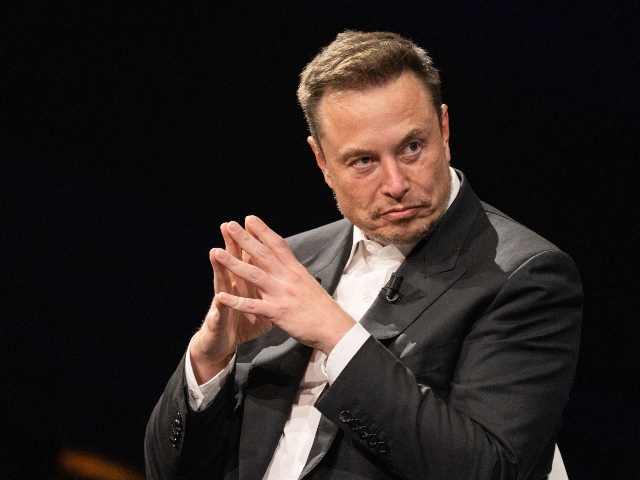Elon Musk’s Neuralink has initiated the recruitment of subjects for its first human clinical trial, aiming to explore the potential of its creepy brain-computer interface technology that has produced nasty results for unfortunate test monkeys in recent years.
The Verge reports that after securing FDA approval a few months ago, Elon Musk’s Neuralink is stepping into uncharted territories with its six-year initial trial, officially titled “the PRIME Study.” This innovative research is designed to scrutinize Neuralink’s cutting-edge technology, which it believes can empower those suffering from paralysis due to spinal cord injuries or ALS, enabling them to manipulate devices through the interface.

Elon Musk, billionaire and chief executive officer of Tesla, at the Viva Tech fair in Paris, France, on Friday, June 16, 2023. Musk predicted his Neuralink Corp. would carry out its first brain implant later this year. Photographer: Nathan Laine/Bloomberg
The PRIME Study, an acronym for Precise Robotically Implanted Brain-Computer Interface, is set to meticulously investigate three integral components of Neuralink’s system. The first is the N1 implant, a brain-computer device. The second component under examination is the R1 robot, a surgical entity responsible for implanting the device. Lastly, the study will delve into the N1 User App, software that interprets brain signals and converts them into computer actions.
Neuralink is extending its recruitment to individuals over the age of 22, diagnosed with quadriplegia due to vertical spinal cord injury or ALS, and those who have a consistent and reliable caregiver. The company claims it is committed to ensuring the safety and efficacy of all three parts of the system, striving to make substantial advancements in the field of neurotechnology.
The participants of the PRIME Study will undergo an intensive 18-month study period, involving nine visits with researchers, followed by a minimum of two hours a week dedicated to brain-computer interface research sessions and an additional 20 visits spread over the subsequent five years. However, the specifics regarding the number of subjects and the exact location of the study remain undisclosed.
Neuralink came under fire after current and former employees claimed that animal testing of the technology been done in an irresponsible manner in the past. Some claim that the company mistreated research animals, killing more than was required and performing “hack job” operations to meet Musk’s tight deadlines.
The Department of Agriculture has opened an investigation into Neuralink regarding potential animal welfare violations. In addition, the Department of Transportation is looking into allegations that Neuralink shipped brain implants taken from research monkeys infected with a number of dangerous pathogens in violation of federal transportation laws.
No matter what happens between Neuralink and the FDA, the vast majority of Americans believe brain implants are a very bad idea.
As Breitbart News previously reported:
The vast majority of U.S. adults surveyed by Pew Research, around 78 percent, stated that they would not personally want a brain chip implant even if they were readily available. Only 13 percent of those that responded to the survey said that they thought the types of implants developed by Nueralink and other biotech companies seem like a good idea for society.
56 percent of those polled by Pew stated that they believe technology like Neuralink would be actively bad for society. A second majority of 57 percent worried that the widespread use of brain interfaces could potentially widen the gap between high and low-income Americans. Less than a quarter of all surveyed believe that even if the tech was widely available it would actually improve human decision-making.
Read more at the Verge here.
Lucas Nolan is a reporter for Breitbart News covering issues of free speech and online censorship.

COMMENTS
Please let us know if you're having issues with commenting.